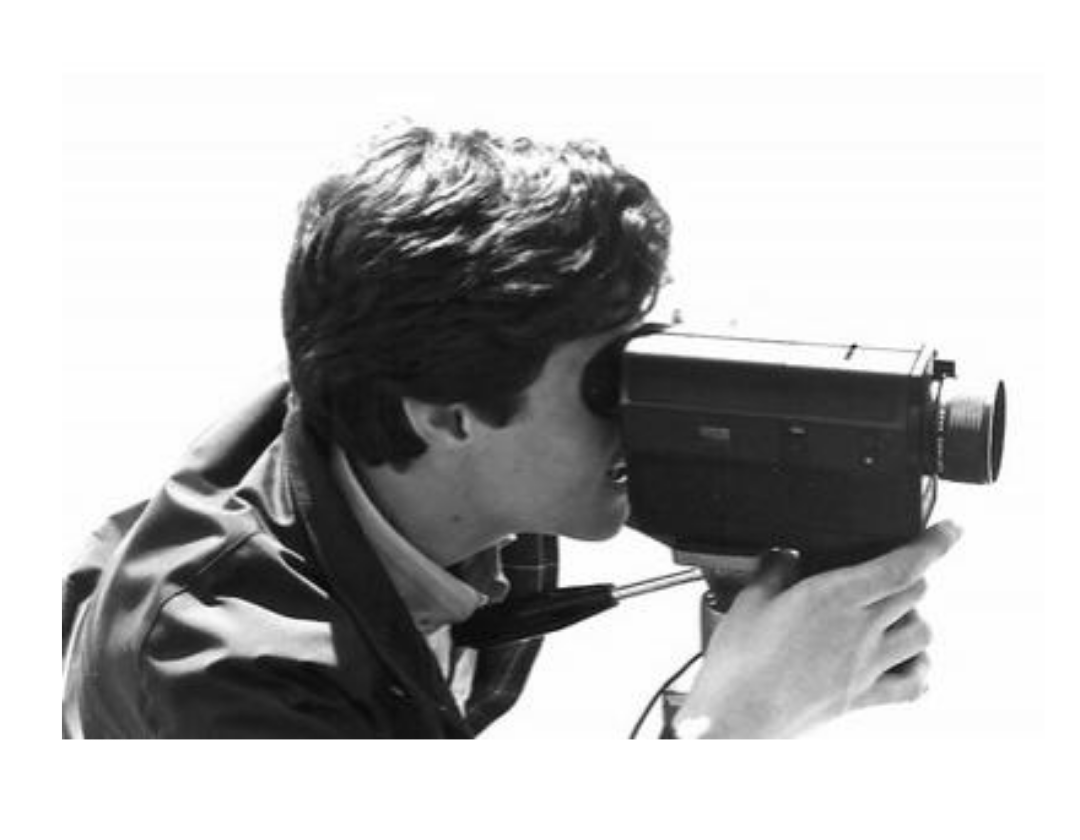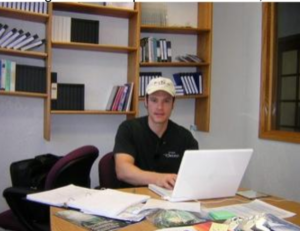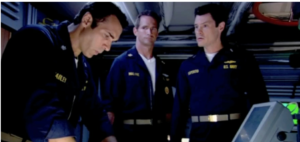What inspired you to become a writer and specifically a screenwriter? What kind of training have you had in writing?
My dream at eleven years old was to become a filmmaker, and the spark happened when my childhood friend Matt Reeves (director of Cloverfield, Let Me In, Dawn of the Planet of the Apes) received a Super-8 camera from his grandfather. We made short films and even started our own “production company” doing the casting, producing, writing, directing, acting, cinematography, editing and even marketing and advertising our films. We made genre movies and would screen them in his garage and charge admission like a real movie theatre. It was during these pre-teenage years when I started co-writing more short screenplays for our movies and then ones I made on my own. As teenagers, we both had our movies screen at a Los Angeles teen film festival along with another Westside of Los Angeles filmmaker J.J. Abrams. The Los Angeles Times wrote an article about the festival and branded us the “Beardless Wonders of Filmmaking” because we weren’t old enough to grow beards like our idols Spielberg, Coppola and Scorsese had.
I continued to make my own short films during high school and then at UCLA Film School where I studied screenwriting and production. Even though I really enjoyed directing and loved acting, it was screenwriting that always felt the most empowering for me. When I graduated film school, I had made five or six student films, culminating with my thesis film and had three feature screenplays, but none got me signed by an agency. I knew that I had to make a choice to focus on one particular craft, and screenwriting became that choice. I loved the fact as a writer you could be anywhere with a laptop or a notepad and just write. It was that creative freedom that I really enjoyed from an early age. Now with over twenty years of professional experience, eight produced films and having just completed my fourteenth paid assignment, I look back and realize those early years of training certainly helped me focus on my goal of becoming a working screenwriter.
Tell us about your first official screenplay. What was that experience like?
I recall writing my first feature length screenplay at UCLA Film School. My professors were all working professionals at the time and gave me valuable insights into the reality of the film business. I remember the long slog through the second act and wondered if I could ever finish a hundred page screenplay. It was a comedy and my screenwriting professor liked it enough to put it into the screenwriting library with a handful of other scripts from her students for others to read. I received feedback from other film students as part of the process and it was a very positive experience. It was a good start on my screenwriting journey, but certainly nothing close to being a professional piece of work. It was my first feature screenplay and I just didn’t have the experience to make it great, but years later and with a few rewrites was able to make it a solid writing sample.
What is your typical process for writing screenplays? (What are the steps from idea through production? What is required of you?)
Over the years, I’ve discovered that ideas come from everywhere if you’re open and observant. My spec that sold and was produced (my fifth spec) came from a dream that I had about a crashed Japanese Zero airplane in Oregon during the beginning of World War II. This drove me to do research, and I discovered the true story of the Japanese submarine that shelled the coast of California just north of Santa Barbara during early 1942. When I write my specs, I usually start with the premise as I did with the spec about the World War II home front. I also work on the characters and let the process play out in my head. Many times they lead the way and I just follow. I know if I can see the movie in my head, then I can write it. I start the process the same way that I do for my assignment jobs. The idea is formed into a story treatment, and I even pin up notecards on a big cork board and rearrange scenes to help me get a clearer picture of the structure. It’s only then when I feel comfortable that I start writing pages. Also part of the my creative process includes keeping a file of notes with loglines, snippets of dialogue, ideas for characters, ideas for stories, personal experiences and items found in the news.
When I’m hired to do screenwriting assignment jobs, many times producers give me the outline or finished treatment and I use it as my roadmap to write the screenplay. Other times, the producers hire me to create the story treatment and we develop it together until they give their blessing and I can actually start writing the screenplay. Most projects involve three or four drafts in a step deal, and the key is getting each draft closer to what they need for the shooting script. I’ve been blessed to work with Academy Award® winning producers and veteran directors who have looked at me as a collaborator. This working relationship has been vital for me to stay on these projects through production and even during post-production. On some projects I’ve been involved with the on-set rewrites as needed, but also during post-production writing extra dialogue for voiceovers in scenes. This is why I believe specs are the training tools for beginning writers to work on their craft. It’s the time to write badly and fail when less is at stake. You don’t want to fail on your first paid assignment job when your fledgling reputation hangs in the balance.
What was your most challenging screenplay? Why was it challenging?
The most challenging screenplay was for the movie USS Poseidon: Phantom Below aka Tides of War because it was a naval submarine drama and required extensive research. It was a screenwriting assignment, and I remember spending three months doing the necessary research before I ever started writing pages. We later had a naval consultant go through the script to make sure the technical aspects and tactics were on point, but it was a real learning experience jumping into a world that I knew little about. You never know where the research will take you, and the fun part is getting to visit places you’d never go before. I was able to tour a docked submarine in Long Beach, California to get a feel of what it’s like to be below deck. It helped me with the writing to have experienced what it’s like in the cramped quarters and narrow passageways.
According to your credits, you’ve also acted, done some producing, and more. How have those experiences compared to your writing?
I’ve always loved acting, and even before I got the bug to be a filmmaker, I was auditioning for TV commercials when I was seven years old. I don’t pursue acting as a career, but if an opportunity comes up, I take the job. This happened on a film that I wrote, USS Poseidon: Phantom Below where the director wanted me on location as the screenwriter, so he put me in the film. I’m becoming more interested in producing along with screenwriting. I’ve produced one feature film that I also co-wrote with the director, and that was three-year labor of love. I enjoy the nature of screenwriting where you’re able to be alone to work on a project anywhere in the world. I was in Italy this spring for a month and worked on a screenplay assignment from a producer in Hollywood that I started before I left.
My experiences on screenwriting assignments have highlighted the fact that if you want more creative control, you cannot just be the screenwriter. Being a multi-hyphenate exposes you to all aspects of the creative process from development to post-production and allows you a voice in the creative decision-making that shapes the final product.

Discussing a scene on the set of USS Poseidon: Phantom Below with director/producer Brian Trenchard-Smith.
When one of your screenplays is being shot, do you ever visit the set?
Yes, whenever I can, if possible. I’ve been blessed with producers and directors who actually want to keep me around. There is nothing quite like seeing your characters come to life in front of you and speaking your dialogue. I’ve visited all of my produced film sets during production except two because they were in another country and there was nothing more for me to do on the script. Luckily, other sets were in Los Angeles, where I’m based, so it was easy to visit. A few times, I was actually working on set doing the necessary rewrites. I also acted in a film that I wrote, so I was on location for two weeks as the screenwriter and actor, and had four scenes with the stars of the film. It was an incredible experience getting to play a character that I wrote and being on screen with these actors. The on-set observation is invaluable for screenwriters to see the actual process of production. It’s one thing to write a spec and another to work a project into a shooting script with all of its requirements.
When you see the completed film of your screenplay, what are your feelings while watching?
I’m still excited to see the finished product, especially if I didn’t visit the set or have anything to do past the production draft. Many times, I’m pleasantly surprised, but have learned to detach and accept the finished product. It usually takes a few viewings for my thoughts to settle. I enjoy throwing a viewing party with my TV movies when they premiere, but too many people talk over the scenes and ask questions and miss subtle things. It’s frustrating because I want to see the film with an audience, but I also need my own uninterrupted thoughts about it upon the first viewing. Yes, I’m critical when elements don’t reach their full potential, but at the end of the day, I wasn’t directing, and I understand the realities of production. My work was done when I turned over the shooting draft. It’s gratifying to see how a talented director and actors can take my screenplay and elevate it to another level. It’s truly the best example of the creative collaboration that goes on during production. And it’s always a kick when I’m traveling overseas to find my movies airing on TV or see the DVD in a store.
As I know you’ve been writing a book that is soon to be released, please tell us something about it and when it is scheduled to be released. Also, what is your purpose in writing it?
My new book is called A Screenwriter’s Journey to Success and is the culmination of my twenty plus years of experiences working as a professional screenwriter in Hollywood. It’s a “how to” guide to surviving in the trenches of this business with real-world practical disciplines and tactics that helped me to build and establish a career. It’s difficult to reach any level of continued success, and aspirants can use all the help they can get. I wanted to give back and share my knowledge with the hope that aspiring screenwriters might avoid some of the pitfalls that I’ve encountered on my journey. The book will be out on Amazon later this year.
Do you have any other upcoming works you can mention?
I signed for a two-script assignment deal and just completed a second draft of the first project, I’m in post-production on a TV talk show pilot that I’ve co-written and produced, and worked as a consultant on a film due out in 2017 called Bitter Harvest, written by Richard Bachynsky Hoover (who also served as executive producer) and directed by George Mendeluk that stars Max Irons, Elizabeth Barks, Barry Pepper, and Terence Stamp.
What is your advice to young people who seek to become writers in the industry?
You have to go after this dream with everything you’ve got because it’s going to take that much passion, effort and sacrifice. Dabblers need not apply because there are too many others who want success more than you do. They’re deadly serious and working overtime while others are playing and sleeping. It’s what separates those with a passion for writing from others who only seek fame and fortune. If you can’t carve out the necessary time to create a solid body of work, consider pursuing a new profession. Trust me, this is a lifelong journey of learning with soul-crushing bouts of rejection, criticism and failure before you’ll see any signs of forward progress. But it also has the greatest creative highs imaginable with the satisfaction of seeing your dreams become reality. There is nothing quite like sitting in a packed theater and watching the film you wrote.
The key is to find your passion and be patient as you master your craft. Keep your eye on career goals while focusing on your love of screenwriting, not the urgency for success. It took me six years after graduating film school to sell my first screenplay. It was another eighteen months of development before it went before the cameras. It was seven years from the time I completed the first draft to the first day of photography. And that’s only one spec’s journey. I use this as an example to show how each project will have its own life or stall and never get produced. Even after twenty years of working in the film business and thirty screenplays, I’m still humbled every time I start on a new project. If you take just one piece of advice, understand it’s a lifelong learning experience, and you’ll need tenacity and passion to weather the storms and reach any level of success.
There is nothing like capturing a unique perspective from a gifted and seasoned industry professional such as Mark, and I am incredibly pleased that he was willing to share so much of his vision and wisdom with my readers and me. As a writer, a considerable amount of what he said resonated with me, and I find myself sympathizing with what he mentioned, both positive and negative. His advice to young people is some of the soundest advice I’ve heard concerning writing in this competitive business. In spite of everything, it is intrinsically evident that Mark has remained humble, charitable, and buoyant in an industry that would seek to scar one’s soul with cynicism. No icy water can quench the intoxicating blaze that Mark harbors within his very essence. His genuine passion for his craft leaps off the screen with such vigor that is sometimes not seen in this business or in the writing profession as a whole. It is screenwriters like Mark, who will ensure that the up-and-coming generation is well-equipped to face the ups and downs in this business with a dogged determination and unfaltering allegiance. He is committed to sharing his tips for survival and success, and I can only hope that the younger generation heeds the experience of writers like him who know what they are talking about and are willing to render aid in any way they can. I invite everyone to check out Mark’s works–past, present and future–as there is no doubt he is a master at what he does. And if you are a writer–aspiring or otherwise–or know of one who is, be sure that you check out Mark’s soon-to-be-released book as I know this may be the ultimate manual to making a success of writing in the entertainment business. Oh, and be sure to follow Mark at all the various links below (and check out his “mini-biography” that he has provided as well).
FOLLOW MARK
Mark Sanderson (aka @scriptcat) is a Los Angeles based screenwriter, script consultant, and sometimes actor blessed to be living his childhood dream of making movies with over two-dozen screenplays written in genres ranging from comedy to drama—from his sketch comedy writing and performing as a founding member of The Amazing Onionheads and writing for MTV, to his fourteen screenwriting assignments, television premieres, and worldwide distribution of his emotionally compelling films—the indie WWII feature I’ll Remember April, Lifetime Network’s holiday films An Accidental Christmas and Deck the Halls, the stylish indie noir feature Stingers, action-packed thrillers USS Poseidon: Phantom Below and SyFy Network’s Sea Snakes (aka Silent Venom), the LMN thriller Mother of All Lies, and his latest Lifetime Network premiere Mommy’s Little Girl. Mark’s films have opened festivals, premiered on Lifetime, LMN, Fox, SyFy, HereTV, HBO Canada, The Movie Network, Christmas 24, NBC Universal, and have been distributed globally.
Mark’s new book A Screenwriter’s Journey to Success will be published in late 2016 on Amazon and his popular screenwriting blog can be found at My Blank Page. He offers screenplay consultation services on his website www.fiveoclockblue.net, screenwriting video advice on his Youtube Channel and advice from his on-demand webinar A Screenwriter’s Checklist available for streaming rental.
2 Comments
-
I love your interviews on your blog! Great questions and love Mark’s honest answers.
-
Author
Thank you so much Barrie. I absolutely love doing these interviews. I’ve gotten to interview some pretty cool people.
-






